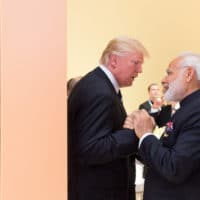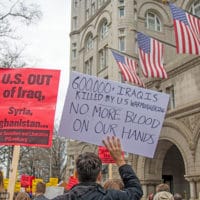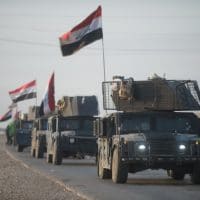-
Don’t threaten Afghans—it will be counterproductive
The principal deputy assistant secretary at the Bureau of South and Central Asian Affairs (SCA) in the U.S. State Department, Alice Wells, dropped a bombshell on the Afghan government and the country’s political elites on April 4—and caught the international donors by surprise, too—by linking all aid to Afghanistan to the formation of an inclusive government in Kabul.
-
A Russian firewall for Venezuela against U.S. sanctions
The optics of the Russian oil leviathan Rosneft’s decision to sell its subsidiary Rosneft Trading SA and sell all its assets in Venezuela after the US Treasury sanctioned its trading arm two weeks ago as part of Washington’s regime change project to oust president Nicolás Maduro, may not look good to the uninformed outside observer.
-
Has America reached its endgame in Afghanistan?
In an extraordinary statement titled “On the Political Impasse in Afghanistan,” Washington has admitted to the failure of Secretary of State Mike Pompeo’s mission to Kabul on March 23, which was taken up to heal the political rift among Afghan politicians and to urge them to form an inclusive government so as to implement the peace agreement signed in Doha on February 29.
-
The prospect of peace in Afghanistan is real—and Pakistan is the key player
The U.S.-Taliban peace agreement signed in Doha on February 29 must be put in proper perspective. Indeed, there can’t be two opinions that the curtain is coming down on what U.S. President Donald Trump called the “endless war” in which America squandered away over a trillion dollars and lost thousands of lives with no victory in sight. Equally, without a doubt, this is the finest hour of Pakistan’s statecraft since the country’s creation in 1947.
-
A World no longer shaped by Atlantic powers
The annual Munich Security Conference that took place February 14-16 this year turned out to be an iconic event, drawing comparison with the one held in the same Bavarian city on February 10, 2007, where in a prophetic speech Russian President Vladimir Putin had criticized the world order characterized by the United States’ global hegemony and its “almost uncontained hyper use of force—military force—in international relations.”
-
Is the World about to witness the end of the war in Afghanistan?
Neither the Indian political leadership nor the “deep state” seems to grasp that the geopolitics of the South Asian region is transforming with far-reaching consequences.
-
How India’s Modi is playing on Trump’s ego to his advantage
One thing about U.S. President Donald Trump is that he can be brutally frank. Trump recently picked up the phone and called British Prime Minister Boris Johnson to convey his displeasure over the latter’s decision to allow Huawei to operate in the UK despite Washington’s repeated urgings.
-
U.S. uneasy as Iraq gets new prime minister
The protest movement in Iraq, which is now entering its fourth month, has come to be the principal instrument for Washington to surreptitiously advance the broader geopolitical confrontation with Iran that is being played out within the country.
-
Why the U.S. might be angling for the return of a new ‘strongman’ like Saddam in Iraq
The departure of the former Quds Force commander Qassem Soleimani is beginning to be felt in Iraq.
-
Turkey Cools Down Tempers over Syria
As Monday dawned, Turkey kept its fingers crossed in keen anticipation of the nationwide address by President Bashar al-Assad on the situation in Syria. Ankara sent an open message ahead of Assad’s speech that if he failed to announce reforms even in a third attempt, he would “miss a big chance” to preserve power. Turkey […]
-
Russia, Turkey, and the US Push for Regime Change in Syria
Seldom it is that the Russian Foreign Ministry chooses a Sunday to issue a formal statement. Evidently, something of extreme gravity arose for Moscow to speak out urgently. The provocation was the appearance of a United States guided missile cruiser in the Black Sea for naval exercises with Ukraine. The USS Monterrey cruiser equipped with […]
-
Turkey’s Not-So-Subtle Shift on Syria
An old story from Istanbul in the Ottoman era mentions a Turkish imam who killed a Christian and confessed the crime, whereupon he was advised by the judge to talk things over with the mufti who told him privately that a good Muslim never admitted felony against infidels and he should simply recant his confession. […]
-
Russia’s U-Turn
Russia went to the Group of Eight (G-8) summit meeting at Deauville as an inveterate critic of the “unilateralist” Western intervention in Libya, but came away from the seaside French resort as a mediator between the West and Libyan dictator Muammar Gaddafi. The United States scored a big diplomatic victory in getting Moscow to work […]
-
Syria, Libya, and Russia’s Retreat from “Reset”
The last thing Russian President Dmitry Medvedev did before departing for France to attend this week’s Group of Eight summit meeting in Deauville was place a call to Damascus. Prima facie, one may think the call made sense, since, as Reuters reported, “Syria’s crackdown on pro-democracy protests” is going to be high on the agenda […]
-
India Needs Course Correction on Iran
The agreement between Iran, Turkey and Brazil for a swap deal on the stockpile of Tehran’s nuclear fuel sets the stage for a diplomatic pirouette of high significance for regional security. The paradigm shift affects Indian interests. The Barack Obama administration has hastily debunked the Iran-Turkey-Brazil deal, which was announced in Tehran on Monday, and […]
-
An AfPak Star over Central Asia
United States AfPak special representative Richard Holbrooke enjoys a fabulous reputation, no matter the current prospects of the Afghan war. The Eurasian space knew him as a potential Nobel winner who evicted Russia from the Balkans. The world at large expects him to take over if and when Secretary of State Hillary Clinton steps down […]
-
Obama Plays Medvedev against Putin and Iran
“Medvedev-watching” graduated from pure science to applied science during the four-day visit by Russian President Dmitry Medvedev to New York and Pittsburgh last week. The Western perception that the famous Prime Minister Vladimir Putin-Medvedev “tandem” in Moscow would inevitably transform and the Russian president would incrementally create his own power center in the Kremlin received […]
-
The End of Chimerica?
Like the star gazers who last week watched the longest total solar eclipse of the 21st century, diplomatic observers had a field day watching the penumbra of big power politics involving the United States, Russia and China, which constitutes one of the crucial phenomena of 21st-century world politics. It all began with United States Vice […]

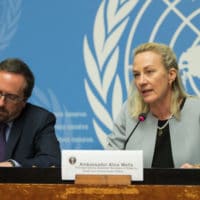
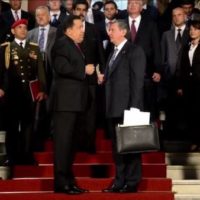
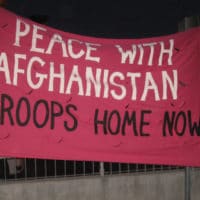
![Secretary of State Michael R. Pompeo participates in a signing ceremony in Doha, Qatar, on February 29, 2020. [State Department photo by Ron Przysucha/ Public Domain]](https://mronline.org/wp-content/uploads/2020/03/peace-signing-200x200.jpg)


